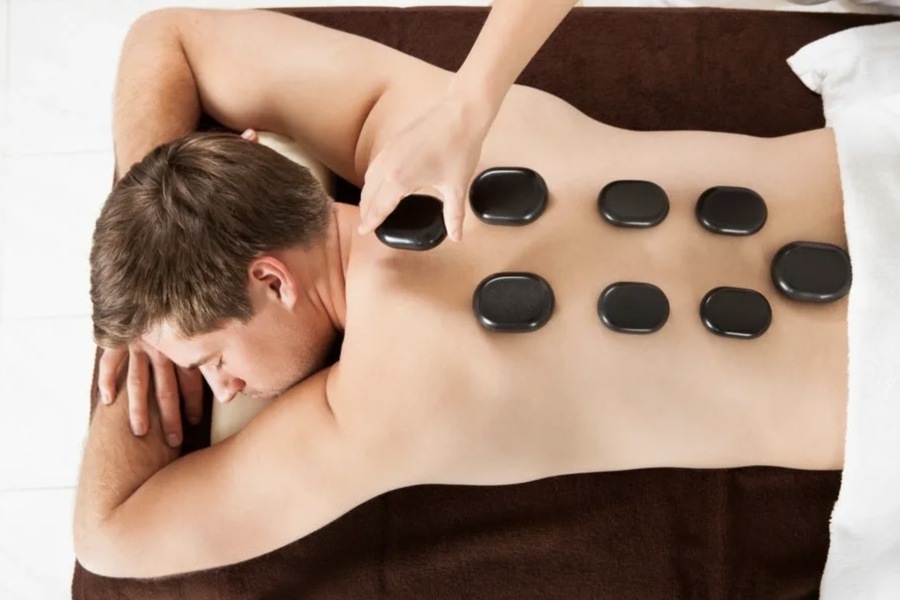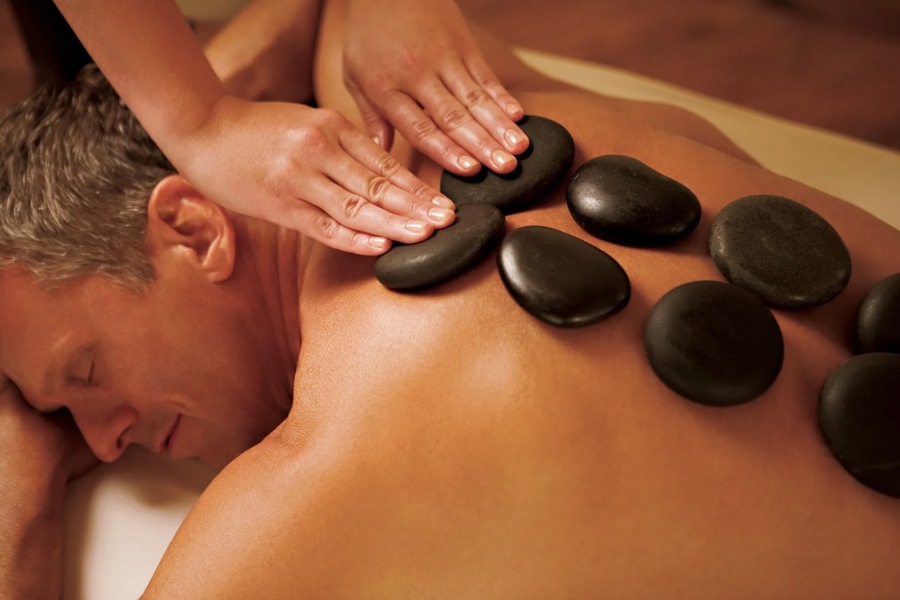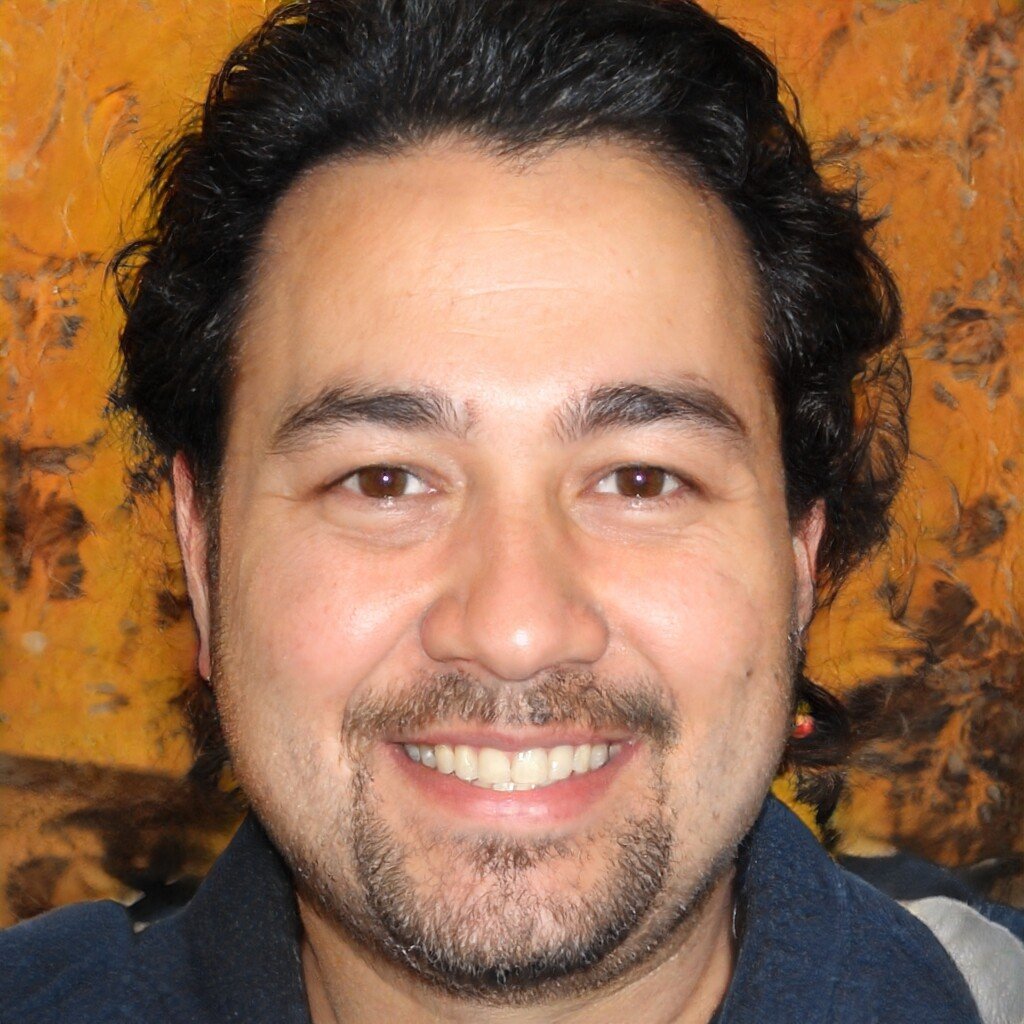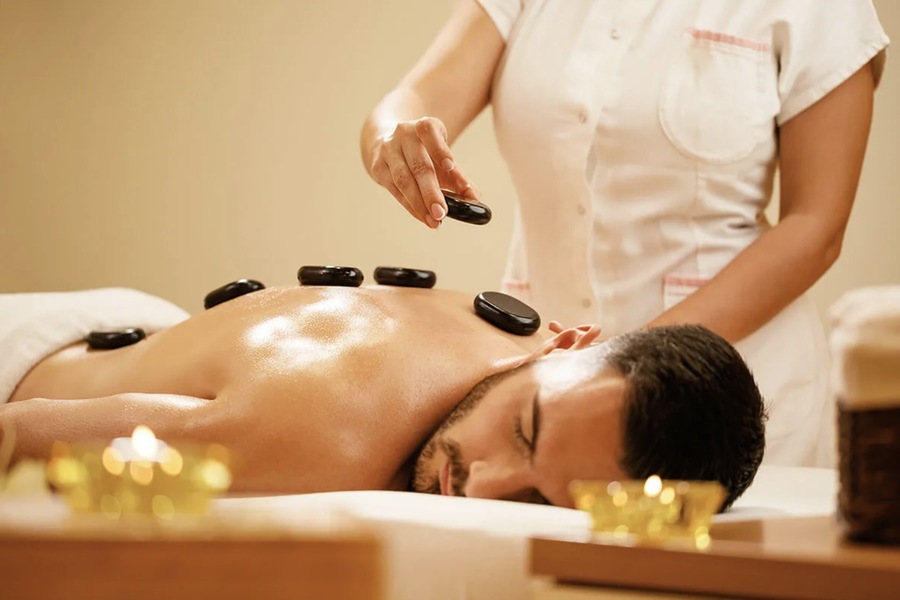Hot stone massage has become a popular therapy in Dubai, offering numerous benefits such as muscle relaxation, improved circulation, and stress reduction. However, the unique climate of Dubai necessitates specific considerations to ensure the effectiveness and safety of this therapy. This article outlines best practices for hot stone massage in Dubai, focusing on adapting to the local environment, maintaining client comfort, and optimizing the therapeutic outcomes.
Understanding Dubai’s Climate
Dubai’s climate is characterized by high temperatures and humidity, particularly during the summer months. According to the UAE National Center of Meteorology, average temperatures can exceed 40°C (104°F) in the summer, with humidity levels often surpassing 60%. These conditions can impact the body’s response to heat-based therapies like hot stone massage, requiring careful adjustments to ensure client safety and comfort.
Selecting Appropriate Stones
The choice of stones is crucial for an effective hot stone massage. Basalt stones, known for their heat retention and smooth texture, are commonly used. In Dubai, it’s essential to ensure these stones are heated to the optimal temperature, typically between 120°F to 130°F (49°C to 54°C). This range allows for deep muscle relaxation without causing discomfort or burns, particularly important in a hot climate where clients may already be heat-sensitive.
Hydration and Pre-Massage Preparation
Adequate hydration is vital for clients undergoing hot stone massage, especially in Dubai’s arid climate. Clients should be encouraged to drink water before their session to prevent dehydration. Additionally, therapists should assess the client’s overall health and hydration status to tailor the massage accordingly. Providing cool, refreshing beverages before and after the session can enhance client comfort and well-being.
Adjusting Room Temperature
Maintaining a comfortable room temperature is critical for a successful hot stone massage in Dubai. While the external environment is hot, the massage room should be kept at a cooler temperature, around 22°C to 24°C (72°F to 75°F). This helps balance the heat from the stones and prevents overheating. Using fans or air conditioning can assist in maintaining the desired temperature and ensuring a pleasant experience for the client.

Monitoring Stone Temperature
Given Dubai’s high ambient temperatures, it is essential to monitor and adjust the temperature of the stones throughout the session. Therapists should use a thermometer to check the stones regularly and ensure they remain within the safe temperature range. Overheated stones can cause burns or discomfort, while underheated stones may not provide the desired therapeutic effects. Using multiple sets of stones allows for continuous rotation and consistent heat application.
Tailoring Techniques to Climate
The techniques used in hot stone massage should be adapted to consider the client’s comfort in a hot climate. Lighter pressure and shorter durations of stone application can help prevent overheating and ensure the client remains relaxed. Incorporating cooling elements, such as chilled stones or cold compresses, can provide a refreshing contrast and help regulate the body’s temperature during the session.
Client Communication and Feedback
Effective communication with clients is essential to tailor the massage to their needs and preferences. Therapists should regularly check in with clients to assess their comfort levels and make necessary adjustments. Encouraging clients to provide feedback on the temperature of the stones, pressure applied, and overall comfort can help create a more personalized and effective therapy session.
Post-Massage Care
After the massage, clients should be encouraged to continue hydrating and to rest in a cool environment. Providing guidance on post-massage care, such as avoiding direct sunlight and strenuous activities, can help prolong the benefits of the therapy and prevent potential heat-related issues. Offering cool towels or cold beverages can further enhance the post-massage experience and promote relaxation.
Training and Certification
Therapists practicing hot stone massage in Dubai should undergo specialized training to understand the unique requirements of performing this therapy in a hot climate. Certification programs that cover the safe handling of heated stones, temperature regulation, and client assessment are essential for maintaining high standards of practice. Ongoing education and training ensure therapists stay updated on best practices and can provide the best possible care to their clients.
Hygiene and Sanitation
Maintaining high standards of hygiene and sanitation is crucial in any massage practice. In Dubai’s hot climate, where sweating is common, it is important to ensure that stones and equipment are thoroughly cleaned and sanitized after each use. Using disposable covers and ensuring proper ventilation in the massage room can help maintain a hygienic environment and prevent the spread of infections.
Cultural Sensitivity and Client Preferences
Understanding and respecting cultural preferences is important in providing effective massage therapy in Dubai. Many clients may have specific cultural or religious considerations regarding physical touch and modesty. Therapists should be trained to handle these sensitivities with professionalism and respect, ensuring that clients feel comfortable and respected throughout the session.
Popularity and Demand in Dubai
The demand for hot stone massage in Dubai is influenced by the city’s status as a global business hub and a luxury tourism destination. The increasing awareness of holistic health and wellness among residents and visitors drives the popularity of spa treatments. According to the Dubai Health Authority, there has been a significant rise in wellness tourism, with many visitors seeking high-quality spa experiences. This trend underscores the importance of adhering to best practices to meet the expectations of a discerning clientele.
Integration with Other Wellness Practices
Hot stone massage can be effectively integrated with other wellness practices to enhance its benefits. Combining it with aromatherapy, reflexology, or yoga can provide a holistic approach to health and relaxation. Offering package deals that include multiple therapies can attract a broader range of clients and provide a more comprehensive wellness experience.

Sustainable Practices
Sustainability is an increasingly important consideration in the wellness industry. Spas in Dubai can adopt sustainable practices by using energy-efficient heating devices for stones, sourcing stones locally to reduce carbon footprint, and using eco-friendly products and materials. These practices not only benefit the environment but also appeal to environmentally conscious clients.
Regulatory Compliance
Compliance with local regulations and standards is essential for operating a reputable massage practice in Dubai. The Dubai Health Authority sets guidelines for the operation of spas and wellness centers, including hygiene standards, therapist qualifications, and safety protocols. Ensuring compliance with these regulations helps maintain the credibility of the practice and provides clients with assurance of quality and safety.
Future Trends and Innovations
The wellness industry is continually evolving, with new trends and innovations emerging. In Dubai, the integration of technology in wellness practices is gaining traction. Advanced heating devices, smart monitoring systems for stone temperature, and personalized wellness programs based on data analytics are some of the innovations that could shape the future of hot stone massage. Staying abreast of these trends and incorporating them into practice can enhance the client experience and maintain a competitive edge.
Conclusion
Adapting hot stone massage to Dubai’s unique climate involves several considerations, from stone selection and temperature regulation to maintaining client comfort and adhering to hygiene standards. By following these best practices, therapists can ensure the safety and effectiveness of the therapy, providing clients with a relaxing and therapeutic experience. As the demand for wellness services continues to grow in Dubai, adhering to high standards of practice will be crucial in meeting the expectations of a diverse and discerning clientele.

Skier, follower of Christ, guitarist, Saul Bass fan and holistic designer. Producing at the junction of art and sustainability to craft meaningful ideas that endure. I prefer clear logic to decoration.
